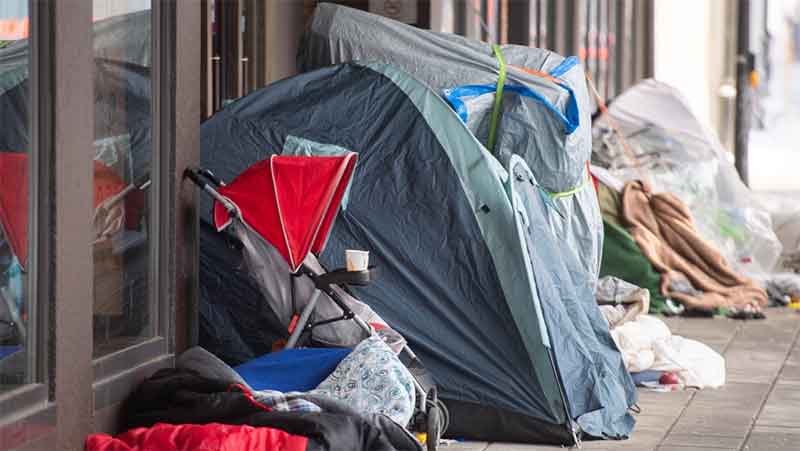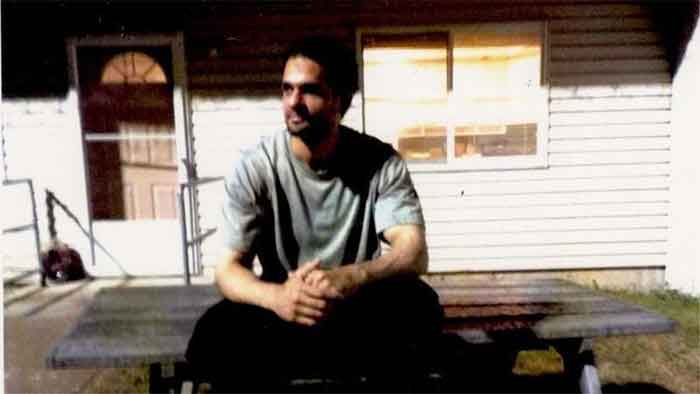
Mohammad Momin Khawaja
All welfare states aim at providing planned humanitarian assistance to its citizens and attempt to address the on-going problems of poverty and how to serve the diverse indigenous communities improving their health, social wellbeing, education and standards of life with practical economic development projects. Poverty and the problems faced by the working poor are constant challenges to progressive societies that a resolution towards these issues is a categorical imperative to the survival of all nations and humanity. Marginalized groups and others who struggle to survive exist throughout the world in developed and undeveloped nations alike.(1) Social inequality which correlates with poverty and the working poor comes about as a challenge for youth and other age demographics where opportunities for meaningful social progress and development ought to exist, and yet may or may not exist. Being born in specific groups which are subsidized by class, gender, race, and ethnicity leads to various forms of inequality.(2) It is important to recognize that the quality of life in any country and the wellbeing of its citizens are determined by the social welfare system. Having the right public policies and a functional social welfare system that provides for the needy is especially important for the survival of marginalized groups and those who struggle to survive. (3)
How to Cope with Health Services , Poverty and Economic Uplifting?
The Public Health Agency of Canada states that nearly 8% of Canadians between the ages of 18 and 64 are the working poor.(4) The poor and the working poor are demographics that are in need of social welfare services. (5) The Canadian Welfare System consists of various social policy programs and services. (6) Income security programs provide monetary or other material benefits in order to give money where needed and help maintain minimum income levels for families. (7)This happens by way of Employment Insurance, Social Assistance, and Old Age Security.(8) Various socio-political policies go towards how governments provide social security. In one historical model of social security, people are responsible for their own wellbeing. If individuals could meet their own needs and not need government assistance, the result would be that the need for income security programs would be significantly reduced. Other policies rely on a greater percentage of contributions from citizens in order to provide for a variety of social needs of the poor and needy. Ultimately, income security programs provide financial stability and protect from vulnerabilities .(9)
Income Security and Basic Human Needs
The importance in having welfare programs such as income security is to ensure that those that are below the poverty line and those that are the working poor have funds and other material benefits in the event of need. Such programs help cover the costs of residence, food, medication, transportation, and other essential day to day needs of families.(10) This would help those suffering from absolute poverty to buy the food they need in order for their physical and mental health to improve and get better. Having financial resources also allows those distraught by relative poverty to afford participation in common activities such as those of
family, community, sports, and exercise. (11)
Social services, which may include personal or community services, help the working poor by providing non-monetary aid to those that are needy.(12) These services include probation, addiction treatment, youth drop-in centres, child-care centres, child protection services, women’s shelters, and counselling.(13)
Many of these services are important to the working poor and in fact go towards alleviating deficiencies and in providing social normalcy. The Public Health Agency of Canada found that recent immigrants are 2 times higher in being the proportion that are the working poor.(14) This demographic of individuals, and others such as that of teenage mothers, may in fact benefit from youth drop-in centres and free child-care services. Social services would allow mothers and fathers greater freedom in being employed and making sure their children are safe and taken care of. First Nations peoples, on reserve and off reserve, have more than 2 times higher proportion of working poor than non-Indigenous people.(15) Among the major and precarious social problems that Indigenous People contend with are homelessness and addiction. Social services such as counselling, women’s shelters, and addiction treatment would all be of great benefit to Indigenous Peoples.(16)
Income Security Helps Societal Welfare
Results from social welfare research show that basic income led to improvements on a variety of variables for recipients.(17) These social improvements include mental and physical health, food, housing, finance, social and family relationships, and the ability to access public transit.(18) The researchers found that there were improvements in feelings of self-confidence and self-worth. These social improvements are likely attributed to the additional income and the structure of basic income supports. Basic income allowed for more freedom and agency than existing social welfare models.(19) The evidence suggests that when compared to existing income support systems, a basic income model such as the OBIP can provide significant improvement in the lives of recipients.(20) The basic income program incorporates an effective and humane approach to social welfare delivery. In retrospect, the basic income program would be an effective way of alleviating absolute and relative poverty.(21) The working poor would find social improvements in mental and physical health, food, and general well being in receiving a basic income program benefit.(22)
References
(1) Public Health Agency of Canada, “Key Health Inequalities in Canada: A National Portrait.’, Ottawa, Public Health
(2) Khawaja, M., “How to Understand the Problems of Violence, Injustice, and other Social Problems in North America.”, The Times, January, 11, 2023, https://www.thetimes.com.au/world/1950 | -how-to—understand-the-problems-of-violence—and-injustice—in—north-american-societal—-manifestation
(3) Raphael, D., “Poverty and the Modern Welfare State, In Poverty in Canada: Implications for health and quality of
life.”, Toronto, Ontario, Canadian Scholars’ Press Inc., 2011.
(4) Public Health Agency of Canada, “Key Health Inequalities in Canada: A National Portrait.’, Ottawa, Public Health
(5) Ibid.
(6) Hick, S., “/Introducing Social Welfare : Understanding Income Security, Thompson Educational Publishing, Inc.,2014.
(7) Ibid.
(8) Ibid.
(9) Ibid.
(10) Ibid.
(11) Ibid.
(12) Ibid.
(13) Ibid.
(14) Public Health Agency of Canada, “Key Health Inequalities
in Canada: A National Portrait.’,
(15) Ibid.
(16) Ibid.
(17)Ferdosi, M., & McDowell, T., “7he experiences of social assistance recipients on the Ontario Basic Income Pilot’, Canadian Sociological Association, 57(4), https://onlinelibrary.wiley.com/doi/10.1 111 /cars.12306
(18) Ibid.
(19) Ibid.
(20) Ibid.
(21) Ibid.
(22) Ibid.
Mohammad Momin Khawaja is a Sociologist and a Journalist: Member of the Canadian Sociological Association (CSA), and Member of the International Center for Journalism – ICFJ Global Network, Washington, D. C. USA. A graduate of Laurentian University in Sociology, he writes on current issues of social justice, criminology, philosophy, ethics, history and problems of social welfare system and human development. He is author of numerous publications including, Women in the Ancient World (Lambert Academic Publication, 2023), and Philosophy and Ethics – Dilemmas of Modern Philosophy and Ethics (2023). He recently published several academic research papers: “North American Colonization of Indigenous People, Cultures and System of Social Welfare.” :https://www.uncommonthought.com/mtblog/archives/2023/05/26/north-american-colonization-of-indigenous-people-cultures-and-system-of-social-welfare.php.
“North American Communities Negotiating the Challenges of Criminal Dilemmas.”https://countercurrents.org/2023/12/north-american-communities-negotiating-the-challenges-of-criminal-dilemmas/ “North American Society, AI and Technological Imperatives.” https://countercurrents.org/2024/01/north-american-society-ai-and-the-technological-imperatives/












































